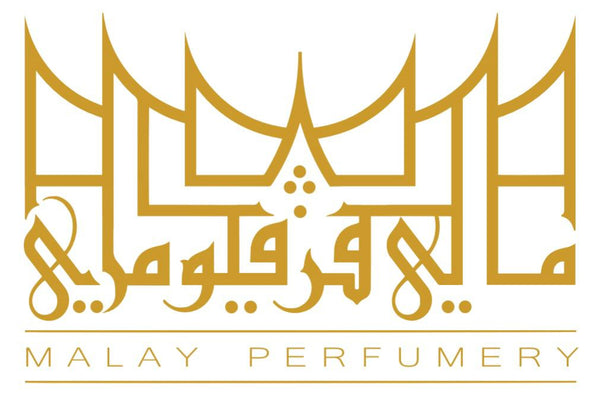About Us
Malay Perfumery is an artisan fragrance house specializing in scents of the Malay Archipelago evoking the heritage of ethnic Malays combined with French perfumery techniques. Our names, scents, and materials are authentically designed at the heart of the Malay world, Malaysia!
The Perfumer
Fazzillah Noordin is the in-house perfumer, exclusively designing all fragrances produced by Malay Perfumery. She has always loved fragrances since a young age that was sparked by spending time in the tropical gardens of her grandmother's heirloom village in Rembau, Malaysia. Through trial and error, she began play-creating her own scents by 'cooking' tropical garden flowers in a pot of water. However, her history in perfumery began in earnest in 2009 when she attended an artisan chocolate-making class taught by a chemist who connected the dots between flavour and fragrance. Something sparked in her and she started an aromatherapy-based skin-care company. After taking a break to complete her Master in Public Policy, Fazzillah decided to dive into her love of fragrance products, registering Malay Perfumery as an enterprise that concentrates on super-niche and artisan fragrances.
The Inspiration
As Ptolemy in AD150 named the Malay Peninsular 'Golden Chersonese' (Land of Gold) in his work 'Geography', the archipelago which centred in the peninsular (present-day Malaysia) was famous for metal-work and metal mining (gold, bronze, brass, iron, and tin). Not only was he being literal, but also implicit as the spice trade was the very foundations that catapulted the region into Western hemisphere's conquest for Gold, Gospel, and Glory.
The Malays are an ancient people that have existed for 40,000 years in the Sunda Continental Shelf region as recent (2018) cave drawings prove. Therefore it is no surprise that the secrets of the earth are very much well-known amongst the people be it as flavour or fragrances. Being expert seafarers, the Malays of the archipelago traded among themselves and later on built rich empires when trade expanded to the Middle East. The traders of Goa and the Middle East were unwilling to disclose from whence came the precious materials such as black pepper, often implying that it came from a mysterious, magical land. Only as recent as 500 years ago were the Malay archipelago discovered by peoples of the West which then sparked wars, colonisation and occupation - first in 1511 by the Portuguese, then Dutch, then British, and finally in WWII by the Japanese. Through it all, countless artefacts were destroyed or stolen, many of which now languish forgotten and decaying, scattered in the backrooms of museums throughout the world. Oral traditions ceased to exist as ethnic cleansing and brainwashing were conducted on the Malays in the span of five hundred years.
By 1957, the region had been split into illogical nation boundaries that separated families and a single mother-culture; worsened by the immigration of China and India labourers during the colonial era. By 2000s, the effects of colonisation, globalisation, and westernisation had taken their almost full effect, and the ancient heritage of Malay ancestors were almost all but forgotten.
Thus it is the aim of Malay Perfumery to bring back whatever is left of the Malay heritage and culture front and centre of the social consciousness so that the hidden memories of ancient people of the archipelago reverses its fade into the unwritten, invisible annals of history.
The Logo & Corporate Colours
Our trademarked logo represents the House from which our perfumer, Fazzillah Noordin, is a descendant. Her matrilineal line is descended from the Proto-Malays (Jakun) who adopted the culture and intermarried with the Minangkabau Malays. Minangkabau architecture feature sweeping roof lines reminiscent of the horns of water buffalos (hence 'kabau' / 'kerbau'). In the logo, below the horned roof is a Jawi-Kufi script of 'Malay Perfumery' to indicate Fazzillah's patrilineal line from Acheh and Goa both of which were seats of Islamic studies during the classical Malay civilisation period. Our corporate colours are bronze gold (to denote the royal heritage of fragrances in the Malay archipelago), black (generally accepted as the colour of Malay warriors), and white (the colour of purity, birth, and death).
